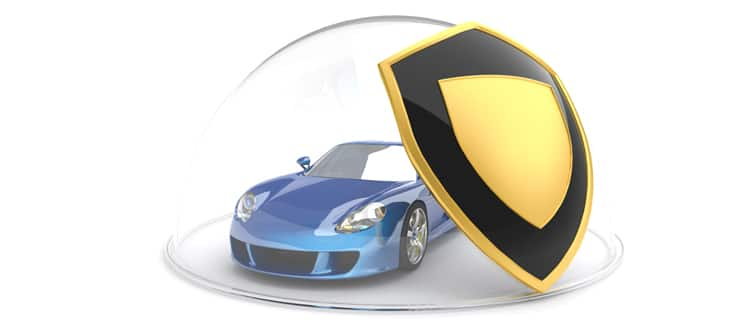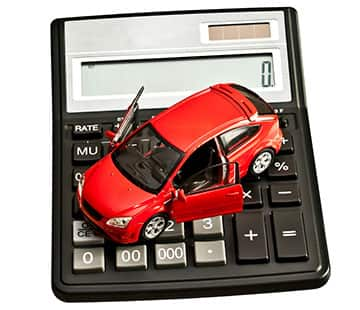-
Renew policy in 2 minutes*
-
21+ Insurers to choose
-
1.2Cr+ Vehicles Insured

-
Home

-
Motor Insurance

-
Car Insurance

-
Articles - CI

- IDV in Car Insurance
IDV in Car Insurance
In layman's terms, the IDV full form is the Insured Declared Value of the car. It is the maximum value given to the policyholder at the time of total loss or theft of the insured vehicle. IDV is only applicable under a comprehensive or OD cover and not under third-party car insurance. Read to know more about IDV, its calculation and what should be the ideal IDV of a car.
Read more
What is IDV in Car Insurance?
Insured Declared Value (IDV) is the maximum amount fixed by an insurer and provided as compensation to the policyholder in case of total loss or theft of the insured vehicle. This compensation is offered when the insured car cannot be traced or becomes beyond repair.
IDV is a crucial factor in the computation of the sum assured in the case of car insurance policies. For each insured vehicle, the IDV is fixed right at the beginning of the policy term, and it remains unchanged throughout.
The IDV value of the car once purchased, along with that of the company-fitted accessories, is fixed on the basis of the manufacturer’s listed price for that car model at the beginning of the policy. Following that, at each renewal, the value is adjusted as per the applicable depreciation.
What is the Importance of Insured Declared Value in Car Insurance?
IDV in insurance is extremely important, as it determines the amount of car insurance premium that one has to pay. It also determines the exact value of the car that must be reimbursed to the owner in the event that the car is stolen or goes through a major accident or total loss.
The higher the IDV value of the car, the higher the premium and vice versa. Some people may, therefore, intentionally put wrong estimates in order to lower the IDV; however, this turns out to be an unprofitable decision in the long run.
In case of an accident or a total loss, insurance providers do not consider the vehicle’s market value; they take into account the IDV value of the car mentioned while taking the policy. Accordingly, the car insurance claims are settled.
Although it may initially pinch to pay a high premium, its benefits definitely outweigh this initial expenditure. Mentioning the right IDV value of the car when purchasing the car insurance policy and following the necessary guidelines tilts the scales in the car owner’s favour.
How is IDV Calculated?
IDV is the amount that is paid out to the vehicle owner in case of total loss, damage or theft of the vehicle. It also determines the vehicle insurance premium that one has to pay, which in turn is based on the vehicle’s brand, model, and age.
The Insurance Regulatory and Development Authority of India (IRDAI) has devised certain guidelines in order to compute IDV for cars. According to these norms, the IDV value of a car can be up to 95% of its showroom price. Until the vehicle is six months old, this IDV value of the car remains the same, beyond which, the value begins to depreciate.
IDV Depreciation Chart
| Vehicle age | Depreciation % to adjust IDV |
| Less than six months | 5% |
| Over six months, less than a year | 15% |
| Over a year, less than two years | 20% |
| Over two years, less than three years | 30% |
| Over three years, less than four years | 40% |
| Over four years, less than five years | 50% |
In the case of cars that are over five years old, there is no fixed depreciation value, and there is no set formula for the calculation of the IDV value of the car – it is arrived at by a mutual agreement between the car owner and the insurance provider.
The old vehicles’ condition is thoroughly assessed (by car dealers, surveyors, etc.), following which the IDV value of the car is computed. This IDV is then used by the insurance company to determine the premium amount.
As a formula, the IDV value of the car is arrived at after deducting depreciation from the manufacturer’s listed selling price. The value of any accessories in the vehicle that are not fitted by the manufacturer is calculated separately as an extra cost in case insurance is needed for them. Insurance costs and registration are not a part of the IDV value of the car calculation. Thus, the formula for IDV calculation is summarised as:
IDV = (Manufacturer’s Selling Price – Depreciation Cost) + (Accessories Cost – Depreciation of These Accessories).
Factors Affecting Insured Declared Value of the Car
The insured declared value of a car is impacted by the following factors:
- Age of the Car: The vehicle’s age affects its Insured Declared Value. When the vehicle is new, its IDV is higher as compared to when it ages. Thus, the higher the age of the car, the lower will be its Insured Declared Value.
- Type of the Car: The type of car is also used to compute its IDV. These types include sedans, SUVs, hatchbacks, MUVs, etc. Since these types have distinct features, their Insured Declared Value also differs.
- Vehicle's Registered City: The city where the insured car is registered also affects the vehicle’s IDV. The IDV of cars registered in a metropolitan city like Mumbai will be higher than in a tier 2 city like Lucknow.
- Depreciation of the Car: As the car ages, its depreciation also increases. This depreciation is decided by the IRDAI and is deducted from the IDV every year. Thus, the older the car, the lower will be its Insured Declared Value.
- Cost and Depreciation of Accessories: The cost of additional accessories and the depreciation sustained by these accessories also affect the IDV of the insured car. This amount is deducted from the car’s MSP along with the car’s depreciation.
What is the Ideal IDV for a Car?
One of the most asked and confusing questions is what the ideal Insured Declared Value of a four-wheeler should be. Deciding the IDV depends on the policyholder, and you must know what IDV you should keep that does not cost you a higher premium. Increasing the value of IDV over your car’s market price will cost you a huge premium, and reducing it will reduce your compensation at the time of claim.
To crack this, ensure that your IDV is close to the market value of the insured car. For a new car, the IDV will be its market value, but as it ages, the depreciation is also deducted to calculate the IDV.
So, make sure that the IDV you choose covers the cost of depreciation as well.
In such cases, you can make use of an IDV calculator that will help you get an estimated IDV, and OD premium of your car, taking into account the depreciation and other above-mentioned factors.
FAQs on Insured Declared Value in Car Insurance
-
Q1. Is it good to increase IDV value?
Ans: One of the advantages of increasing the IDV value of your car is a higher compensation at the time of claim. But a higher IDV also means a higher car insurance premium.
On the other hand, setting a lower IDV reduces your car insurance premium but also reduces the amount of compensation at the time of making a claim.
So, the ideal thing to do in such cases is to set an IDV that is somewhere between both these points. You can either choose an IDV suggested by your insurer or go with an IDV that is close to the car's market value. -
Q2. How much IDV is reduced every year?
Ans: Every year, the car’s IDV is reduced by deducting the depreciation sustained by the car and any additional accessories installed. This depreciation is pre-decided by the IRDAI as per the age of the insured car.
-
Q3. Is NCB and IDV the same?
Ans: No, NCB and IDV are two different terms used in car insurance. An Insured Declared Value is the maximum compensation that you will receive in case of total loss or total theft of the insured car.
On the other hand, an NCB is a reward granted to the policyholder for every claim-free year. This reward can be used to get a discount on car insurance renewal premiums. -
Q4. When should I set a lower IDV for my car?
Ans: You can set a lower IDV in these circumstances:
- If your car is old and its market value has also reduced now.
- If you do not want to pay a higher motor insurance premium
- If you are fine with a lower compensation at the time of claim.
-
Q5. When can I claim the IDV of my car?
Ans: You can claim for the Insured Declared Value of your car when your car has suffered losses beyond repair or is stolen.
-
Q6. Can I set my own IDV?
Ans: Many insurers allow policyholders to set their own IDV if they purchase car insurance directly from them. So, you can set your own IDV, but make sure to keep it at par with your car’s market value.
Find similar car insurance quotes by body type
































Explore More Under Car Insurance
- Motor Insurance
- Car Insurance
- Zero Dep Car Insurance
- Compare Car Insurance
- Car Insurance Calculator
- Third Party Car Insurance
- Comprehensive Car Insurance
- IDV Calculator
- Car Insurance Companies
- Own Damage Car Insurance
- Electric Car Insurance
- Pay As You Drive Insurance
- Renew Expired Car Insurance
- Used Car Insurance
- NCB in Car Insurance


Car Insurance Articles
- Recent Article
- Popular Articles

Is Buying Car Insurance Online Safe?
In recent years, digital transformation has swept across several
Read more
8 Tips to Consider When Buying Car Insurance in...
Whether it is your first car or second, safeguarding it should be
Read more
IRDAI Guidelines for Car Insurance Premiums
The Insurance Regulatory and Development Authority of India
Read more
Things to Know Before Buying Electric Car...
Planning to buy an electric car? Before you do it, you may have to
Read more
How are Electric Vehicles Impacting Car Insurance...
Electric Vehicles (EVs) currently hold a niche spot in the Indian
Read more
How to Check Car/Vehicle Insurance Status Online?
Whether you drive daily or once in a few months, having a valid motor insurance policy is mandatory in India. Like
Read more
How to Get Your Duplicate Car Insurance Policy...
Losing your car insurance documents can be daunting, especially when you need them in an emergency or for a routine
Read more
How To Find Car Insurance Details By Registration...
Everyone driving a car on the road must have a four-wheeler insurance policy. It's not just a safety net that
Read more#Rs 2094/- per annum is the price for third-party motor insurance for private cars (non-commercial) of not more than 1000cc
*Savings are based on the comparison between the highest and the lowest premium for own damage cover (excluding add-on covers) provided by different insurance companies for the same vehicle with the same IDV and same NCB. Actual time for transaction may vary subject to additional data requirements and operational processes.
+Savings are based on the maximum discount on own damage premium as offered by our insurer partners.
##Claim Assurance Program: Pick-up and drop facility available in 1400+ select network garages. On-ground workshop team available in select workshops. Repair warranty on parts at the sole discretion of insurance companies. Dedicated Claims Manager. 24x7 Claim Assistance.






















